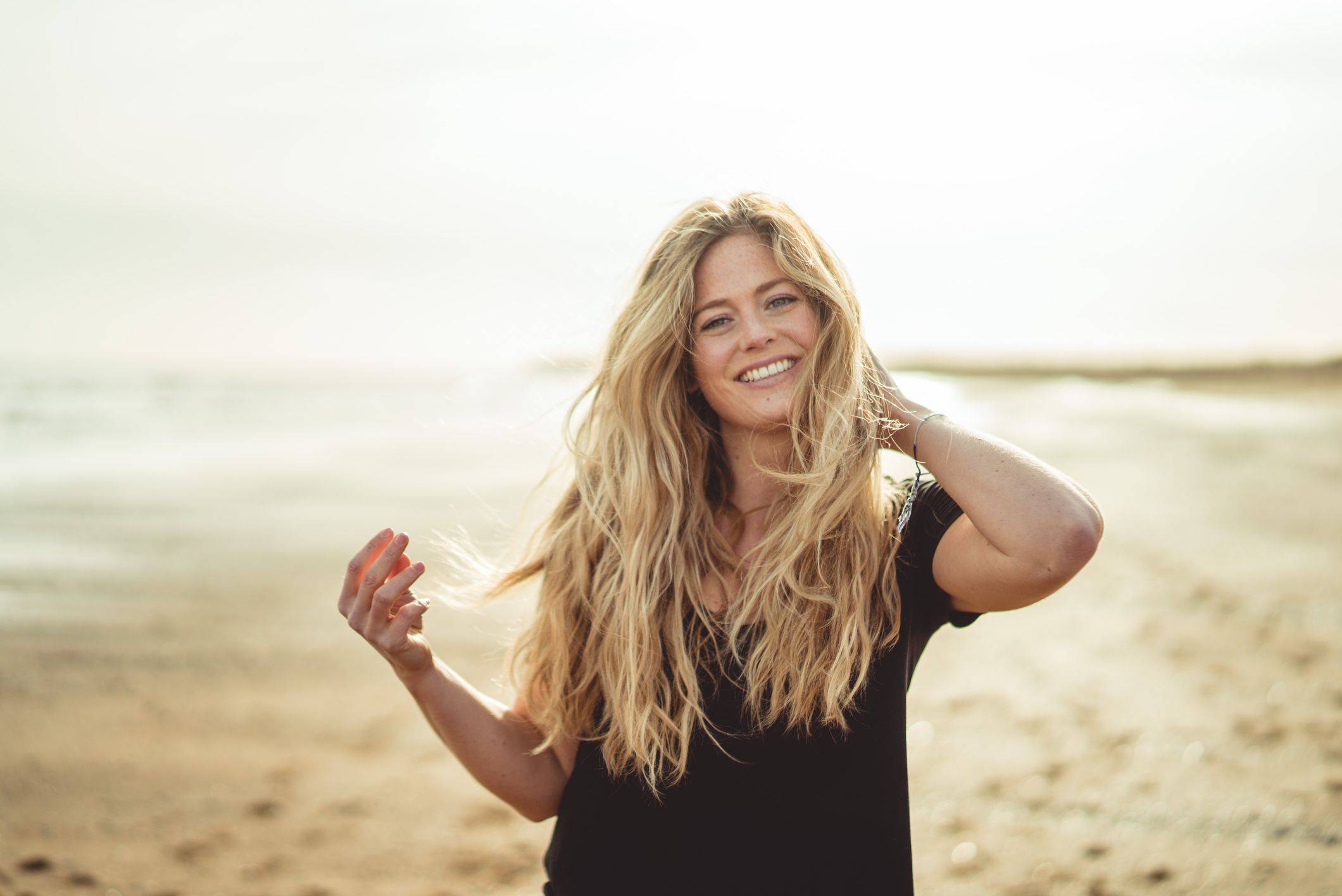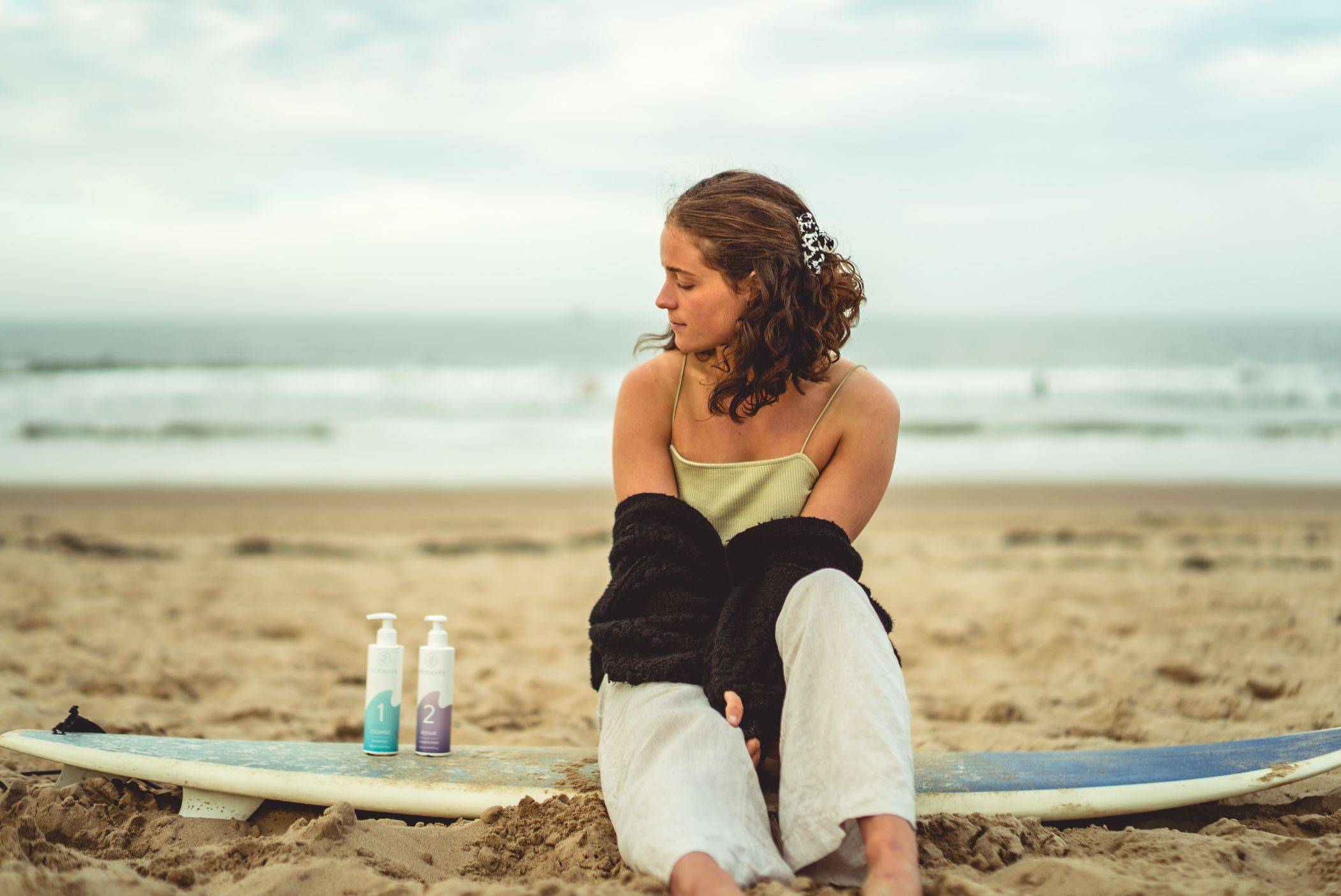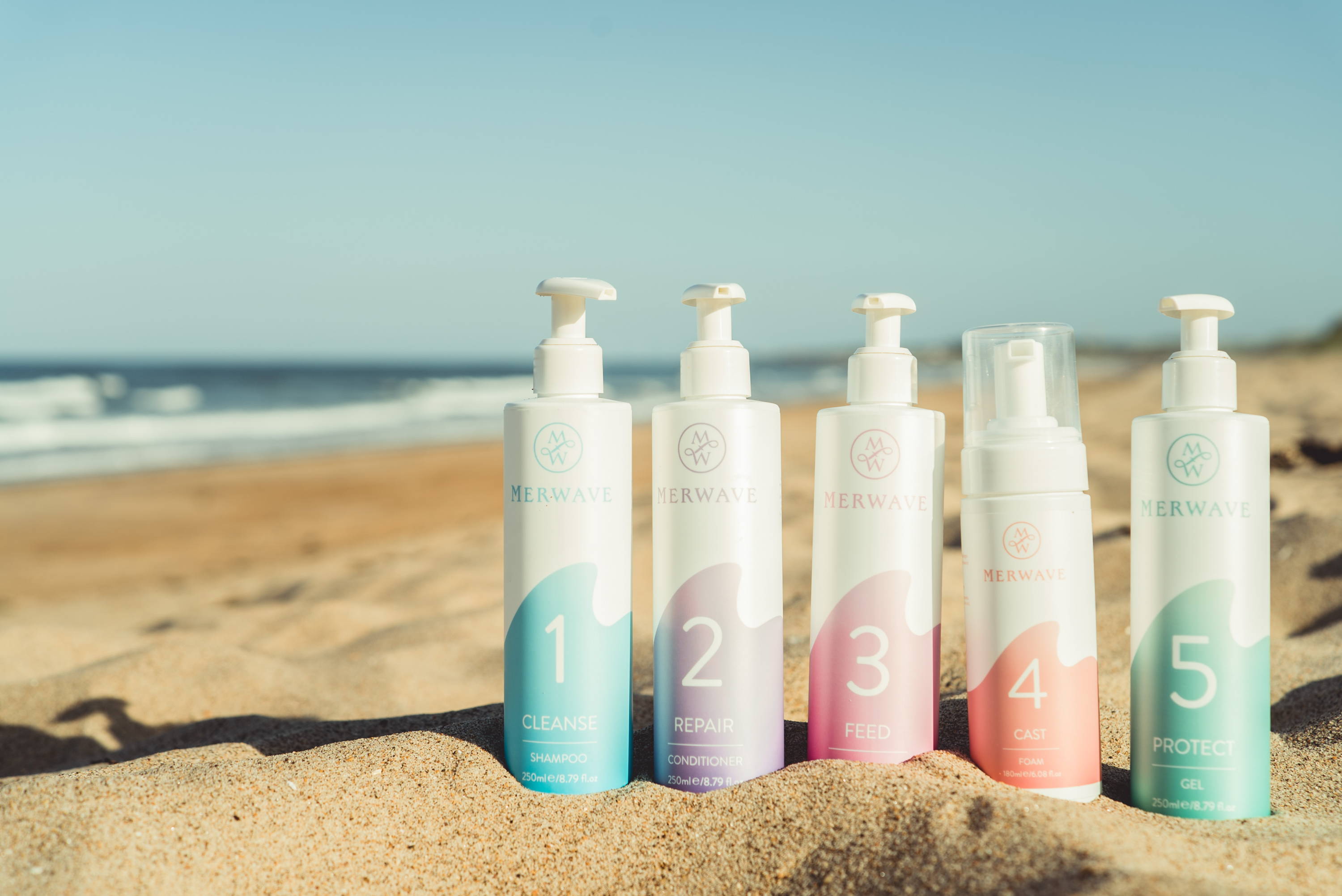Published 20th July, 2021
How Do Hormones Affect Your Hair?
Hormones affect so many parts of the body. Whether it’s feeling tired and lethargic during certain times of the month or getting a little too upset about cute animal videos, your hormones play a contributing factor to your physical health.
So, what makes you think that your hormones won’t affect your wavy hair? Believe it or not, the way your hair behaves can tell you a lot about your hormone changes.
If you’ve noticed a difference in the way your hair looks and feels (or perhaps it’s completely changed) and you’re struggling to find a solution, you may need to look closer to home and consider if hormone shifts could be the cause.
Here’s all you need to know about the relationship between hair and hormones.
what hormonal changes happen?
Your hormones are always going up and down, but they will be fairly settled for the most part. However, there are some occasions that can bring about high hormone changes in your body and completely send your wavy hair into overdrive!
Nevertheless, it’s surprising how many people don’t recognise the connection between their hormones and their hair. Sometimes it’s not about having a bad hair day or a temporary hair funk, it’s about what’s going on elsewhere!
Here are four occurrences that can kickstart hormone-related hair changes.
1. Pregnancy
If you’re pregnant or recently had a baby, you may notice that your hair is noticeably different from before. Unsurprisingly, being pregnant stirs up a whole lot of hormones, some of which can affect your hair, skin and nails.
For many women, the pregnancy glow includes thicker, glossier and longer hair! If you have wavy hair or curly hair you may notice that your definition becomes tighter or as your hair gets longer it may begin to drop and form into loose waves.
Women with straight hair may find their hair becomes wavy or curly during or after pregnancy. If you are new to textured hair and don’t know how to look after wavy or curly hair then Merwave’s 5 step method is a simple way to bring out the best in your hair.
The sudden hair growth during pregnancy is usually down to the increase in estrogen and the anagen phases of hair growth (also known as the active phase) is suspended and therefore encourages fuller, denser hair.
2. Stress
When your mind is working overtime, so is your body. Your mental and physical health are more closely related than you may think so when stress takes hold you may experience anything from thinning hair to bald patches and even complete hair loss - although this is only in severe cases.
Stress and hair loss can occur in several ways. Telogen effluvium is a form of widespread, non-concentrated hair loss on your scalp which causes the growing phase of the hair cycle to be cut short.
Additionally, when you’re stressed you often don’t care for your body in the same way. Bad foods, bad hair products and not enough sleep won’t help with hormone imbalances or stress.
3. Menopause
what are the signs that hormones are affecting my hair?
Your hair may have changed in the way your natural waves form, how it feels, or how it reacts tohair products for curly hair, but are you really taking notice of the obvious signs?
Sometimes the answer to your hair woes is right in front of you! Take note of its condition as well as how your natural waves have changed as it could all be linked to your hormones.
Here are four top signs that hormones are playing havoc with your hair!
1. Your hair is brittle
Nobody wants damaged hair butbrittlenesscan occur when hormones are not regulated properly. The imbalance can result in brittle hair that looks or feels dry and weak.
The key is to give your hair a little more attention by treating it with high-quality, natural products that will provide your hair with nutrients. Brittle hair will be more prone to further damage if you avoid doing something about it sooner rather than later. So now is the time to act.
One option is to try the Curly Girl Method to give your hair a break. Eliminating chemical-based products and techniques could breathe new life into your wavy hair.
2. Your hair is dry
A lack of moisture is not uncommon due to hormone issues, especially for people going through menopause. If you have natural waves or curly hair then you’ll know that dryness can already be an issue and frizzy hair can already be a problem!
The key is to restore your hair’s moisture. While you’re experiencing changes in your hormones there are still things you can do to improve your hair. Leave-in treatments are one of the best products for curly hair and natural waves as they will nourish your locks from the inside out.
3. Your hair feels lacklustre
When your hormones are off-balance or are experiencing fluctuations, you may lose all of your natural shine. Lacklustre hair doesn’t look its best no matter what curly hair type you have!
For many, lacklustre, dull hair is one of the most obvious signs that their hormones could be affecting their hair and something has changed.
You may need to switch up your routine a little by trying new products, new techniques and generally giving your hair a little more attention day to day. Sometimes a small change is all you need to get your hair looking and feeling great again.
4. Your hair is thinning
Hair loss is more common than you might think!If you’ve noticed your hair becoming thinner then it could be related to hormones. Often, wavy hair is naturally thick so when it starts to thin out your natural waves may drop and become flat.
To help with thinning hair, avoid tight hairstyles and let your scalp breathe! Plus, when washing your hair avoid using your nails to scratch your scalp. Instead use your fingers tips or a scalp massager to gently massage and be careful when detangling!
Reality is, everyone's hair is going to go through periods of change. We just need to learn to accept it and adapt our routines to deal with these changes.
If you're looking to give your wavy hair the TLC is craves, then check out the natural 5 step system from Merwave.
Don’t let changes in your hair get you down! After just a few weeks, you can experience a noticeable difference in the look and feel of your wavy hair by simply following a quick and easy system.
Click here to check out how it works.










